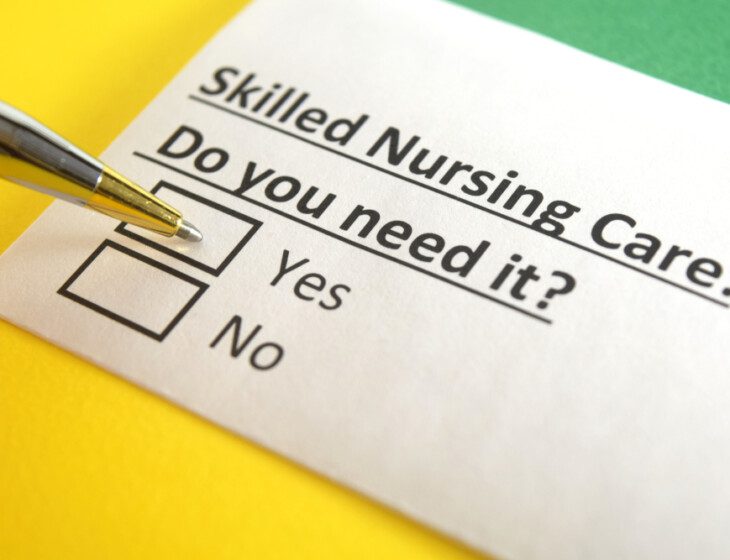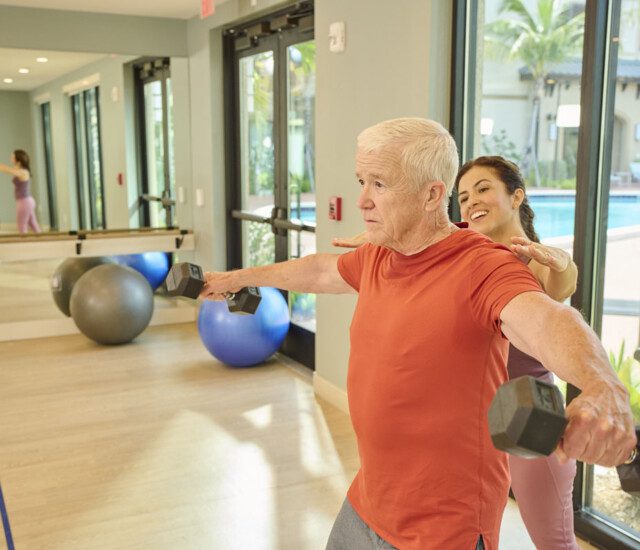Who benefits from skilled nursing care? Those who need 24/7 monitoring for health reasons are often referred to a skilled nursing center. Sometimes, once a person leaves the hospital after being treated for or recovering from serious illness, surgery, or injury, they may be referred to a skilled nursing facility by a doctor.
While keeping seniors in their own homes to receive care is an understandable decision, home health care and even standard nursing homes simply can’t match the many benefits of skilled nursing care. The skilled services, around-the-clock care, and possible insurance coverage alone are reasons many seniors and their loved ones seriously consider skilled nursing care, but there are many often overlooked benefits to consider as well.
Below, we’re exploring what skilled nursing means, the top benefits of skilled nursing facilities for seniors, and why many seniors are choosing retirement communities that offer skilled nursing care options.
What is a Skilled Nursing Facility (SNF)?
Skilled nursing for seniors refers to a high level of medical care provided by trained individuals, such as registered nurses and physical, speech, and occupational therapists. These services are designed to meet the needs of seniors who may require 24-hour supervision and medical assistance.
A skilled nursing facility is a healthcare residence for elderly patients who need continuous medical care and support for conditions or injuries, offering a bridge between hospitalization and home care. These centers provide not only medical attention but also rehabilitation services, aiming to improve or maintain the health status of seniors in supportive and supervised surroundings. Many senior living communities include a variety of care options, like independent or assisted living, in addition to skilled nursing services that are available if needed.
7 Benefits of Skilled Nursing Care
1. Lowers Risk of Rehospitalization for Seniors
When seniors are hospitalized for an illness or injury, the potential for rehospitalization is always a concern. The goal of skilled nursing care is to avoid rehospitalization by either regaining some level of independence through rehabilitation or staying in skilled nursing for longer periods with the comforts of home, rather than a hospital. One of the standard benefits of skilled nursing care is ongoing health monitoring. Wound care, injections, catheter care, physical therapy, and monitoring of vital signs are all skilled nursing care services that can be performed outside a hospital setting.
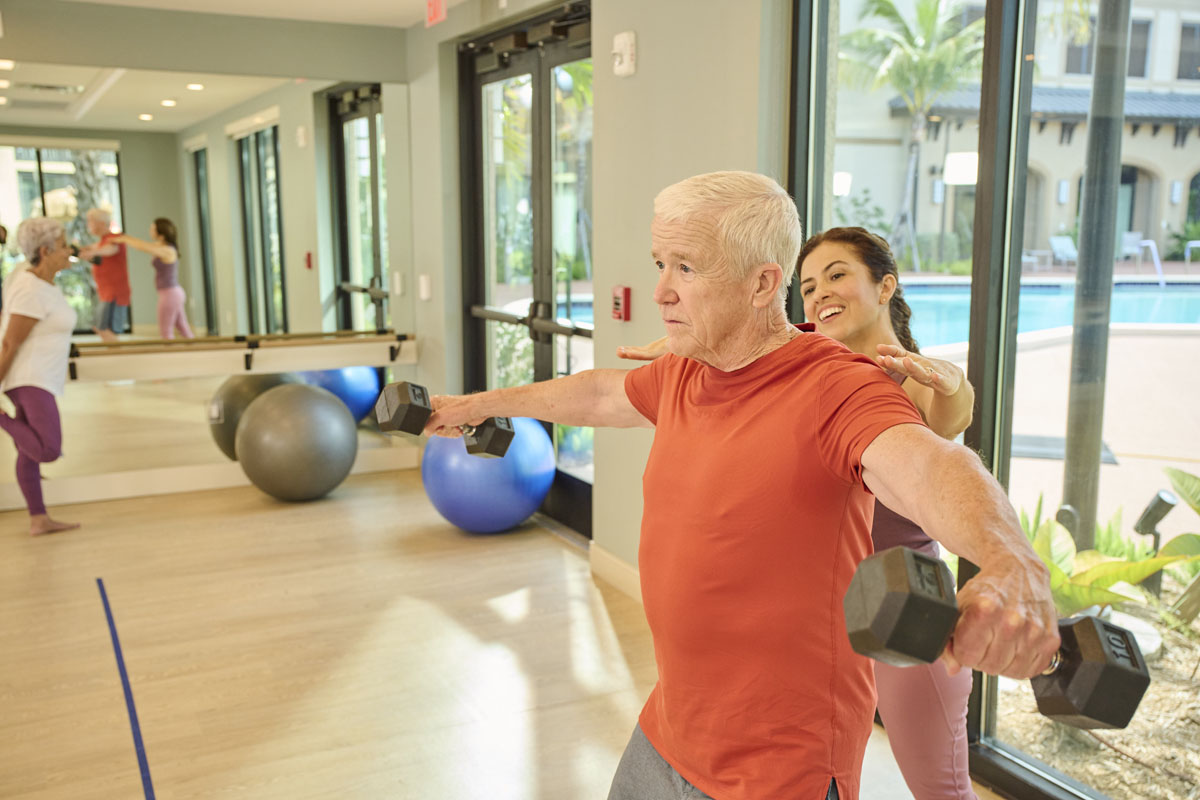
2. Specialized Rehabilitation Therapy for Seniors
Of all the skilled nursing benefits, specialized therapy is perhaps the most impactful. Many communities offer Medicare-approved rehabilitative care, including physical therapy, occupational therapy, and speech therapy.
- Physical therapy typically includes strength training to improve mobility and help with fall prevention, as well as pain management for those suffering from chronic pain.
- Occupational therapy is used to treat causes that keep seniors from doing daily activities and help them regain or maintain some level of independence.
- Speech therapy focuses on the treatment of communication problems and speech disorders caused by an injury or illness such as stroke or brain injury.
The primary benefit of skilled nursing care is that all three therapies are not only available but often work together to provide the best possible outcome for the person receiving such care.
3. Social Engagement and Community
Sudden changes in health can be overwhelming for seniors, especially after a debilitating illness or injury. Isolation can make these feelings even worse. Being surrounded by caring nurses, team members, and other residents is one of the most valuable but often overlooked benefits of skilled nursing care. In many communities with skilled nursing care, just like independent living and assisted living, residents can participate in engaging, uplifting social programming that’s designed for their level of mobility. Such programming has been shown to significantly benefit skilled nursing residents’ physical health progress and, equally important, their mental health.
4. 24/7 Nursing Care for Seniors
Skilled nursing facility residents have access to not just around-the-clock scheduled care but also benefit from the immediate emergency response if they need it. Registered nurses, licensed practical nurses, and certified nursing assistants are standard caregivers in most communities. In addition, on-site physicians specialized in internal medicine, gerontology, podiatry, dentistry, optometry, and neurology are also frequently on-site to provide a wide range of care.
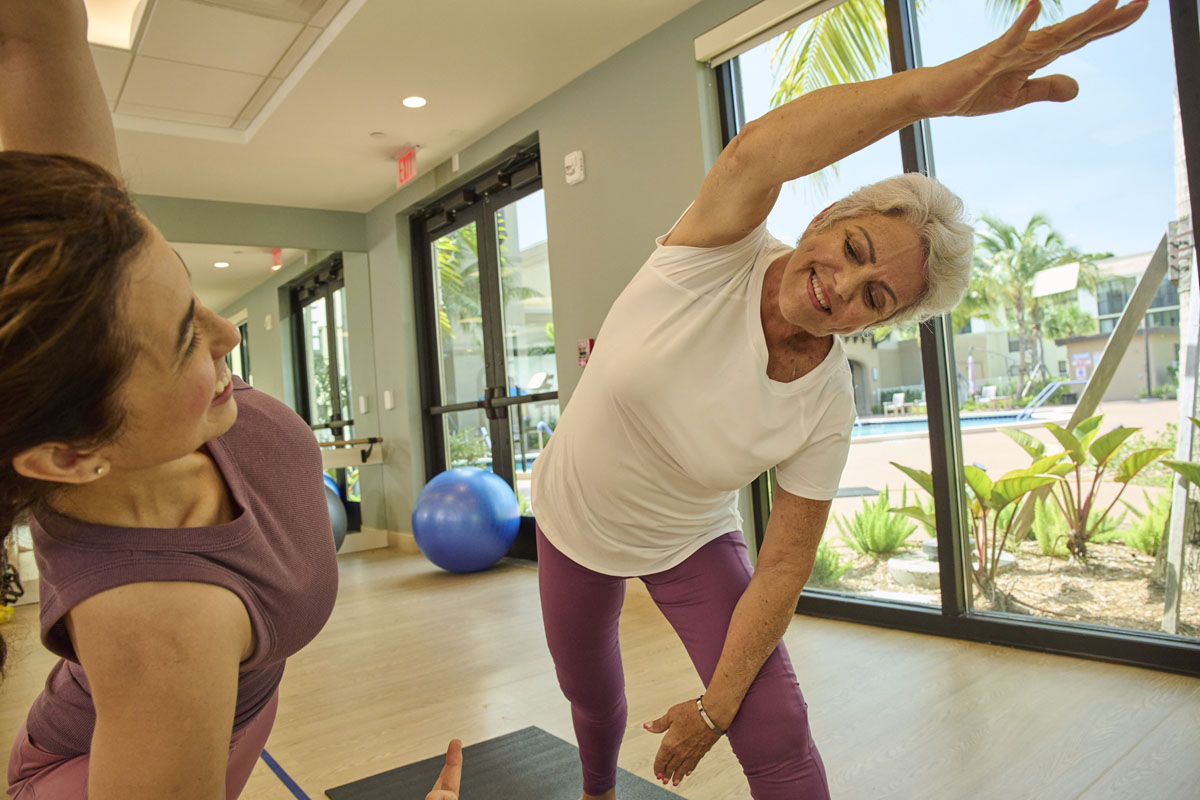
5. Personalized Care Plans and Assessments
In skilled nursing care, either long-term or short-term, community team members go to great lengths to build relationships with residents rather than just provide medical care. They tailor treatments to the individual, an approach that runs counter to the standardized care found in many hospitals and nursing homes.
Medicare-certified skilled nursing facilities require comprehensive patient assessments for every new resident who enters. Daily assessments and skilled care start the day you arrive. The first recorded assessment must be within the first 8 days of your stay, known as the 5-day assessment. Medicare also requires recording assessments on the 14-day, 30-day, 60-day, and 90-day mark of your covered stay. The skilled nursing center must do this until you’re discharged, or you’ve used all 100 days of coverage in your benefit period. Each assessment includes:
- Your current physical and mental condition
- Your medical history
- Medications you’re taking
- How well you can do activities of daily living (such as bathing, dressing, eating, getting in and out of bed or a chair, moving around, and using the bathroom)
- Your speech
- Your decision-making ability
- Your physical limitations (such as problems with your hearing or vision, paralysis after a stroke, or balance problems)
6. Customized Dietary Assistance
Properly balanced nutrition is critical for seniors. Unfortunately, seniors with medical conditions often struggle to prepare and eat nutritious meals on a regular schedule. That’s why dining services in communities are among the most valuable skilled nursing benefits. Communities with skilled nursing care often offer multiple dining options with restaurant-quality food. More importantly, communities employ certified dieticians who work with residents to create a meal plan complete with all nutritional needs.
7. Cost & Coverage for Necessary Services
An immense benefit of skilled nursing care is how you pay for skilled nursing care and what health insurance like Medicare covers. Medicare Part A will cover a total of 100 days of care in skilled nursing care, provided certain criteria are met. However, after day 21, a daily coinsurance payment is required. You must have a recently qualified hospital stay, meaning you must have stayed in the hospital for a minimum of three consecutive days receiving medically necessary care. You must have confirmation from your doctor to verify that you require daily skilled nursing care services or therapy. And the facility to which you’re admitted must be Medicare-certified.
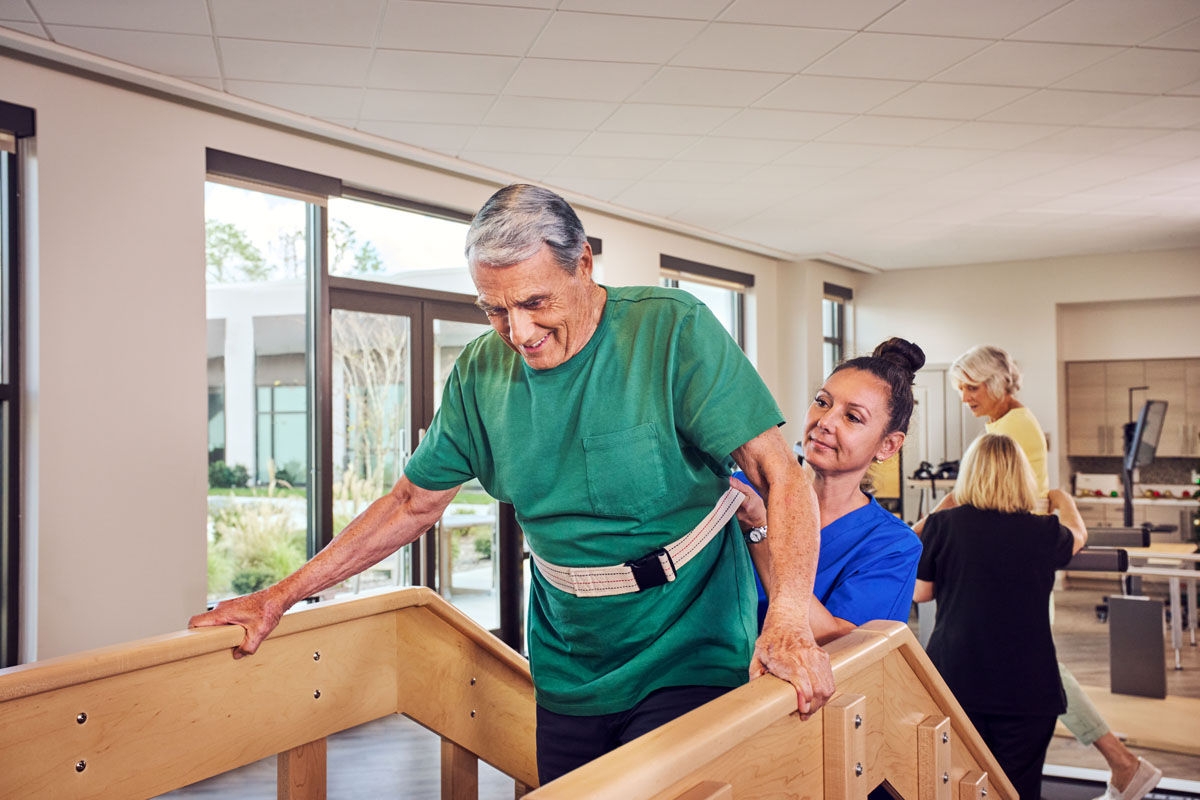
Medicare covers both in-home health care and care at a skilled nursing facility. However, coverage is more limited for in-home care. For instance, while it will pay for prescription drugs for inpatients, it won’t cover medications for individuals who receive care at home. Likewise, Medicare won’t pay for meals to be delivered to the home, but it does cover meals for skilled nursing residents.
Skilled Nursing Services in Florida | 5-Star Senior Living Care
At Harbour’s Edge, our skilled nursing level of care combines comfortable surroundings with 5-star care and a wide variety of social, recreational, and cultural activities to help promote socializing and friendship. Plus, with delicious dining options and an ever-present view of the Intracoastal Waterway, skilled nursing residents can find joy and beauty in each day.
To learn more about our services as a premier senior living community and skilled nursing facility in Florida, contact us by filling out the form at the bottom of this page or call us any time at (561) 272-7979.
